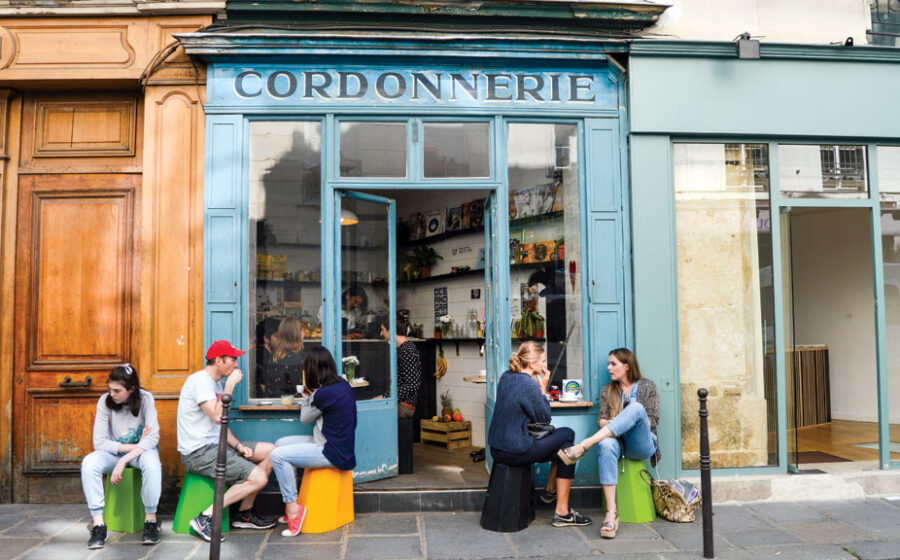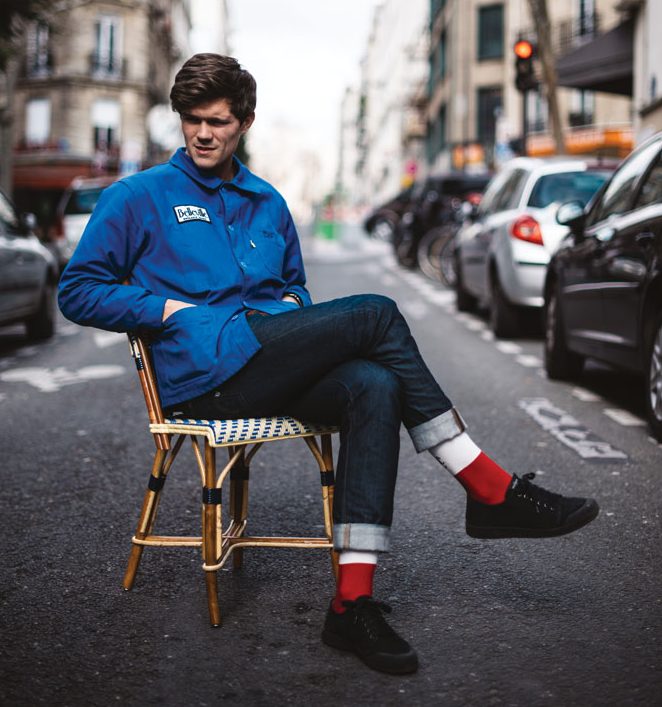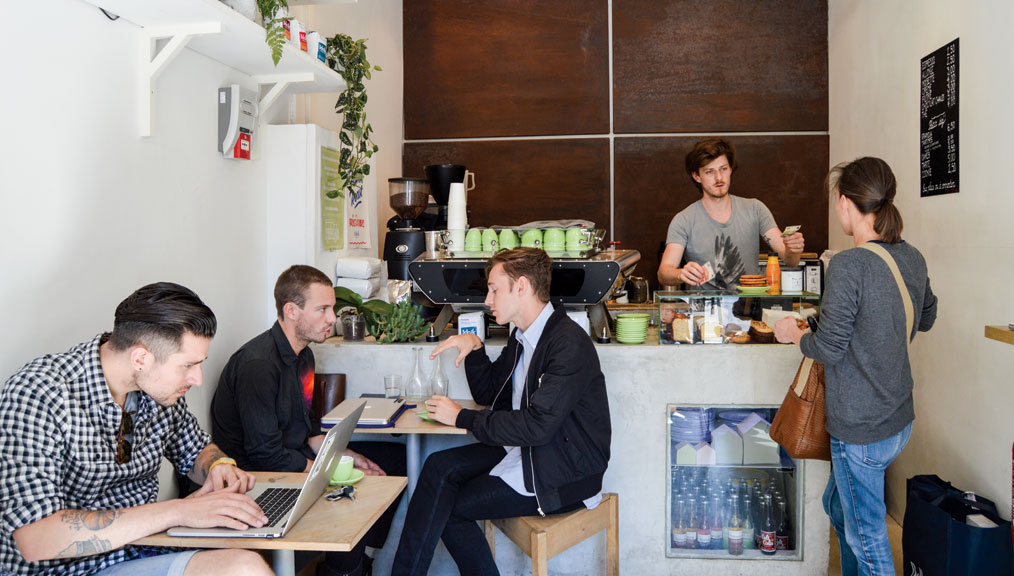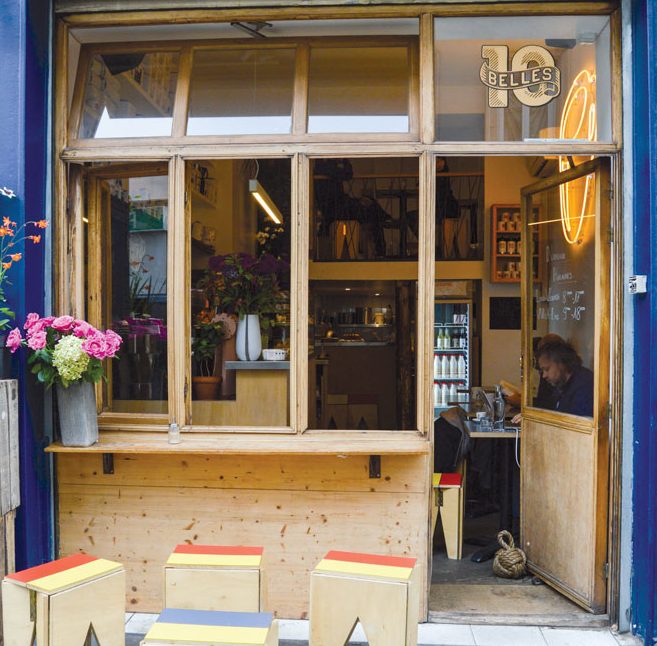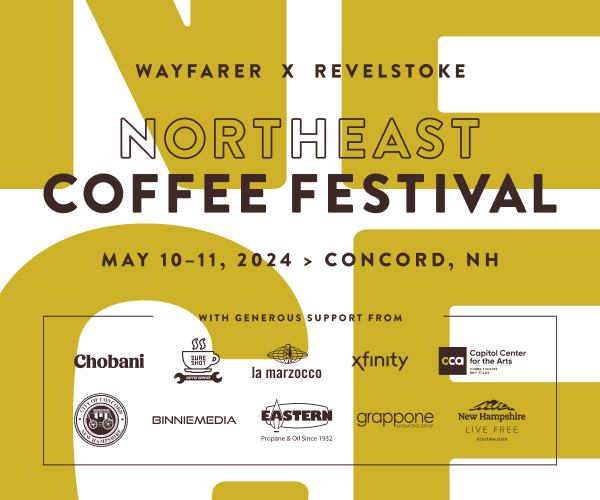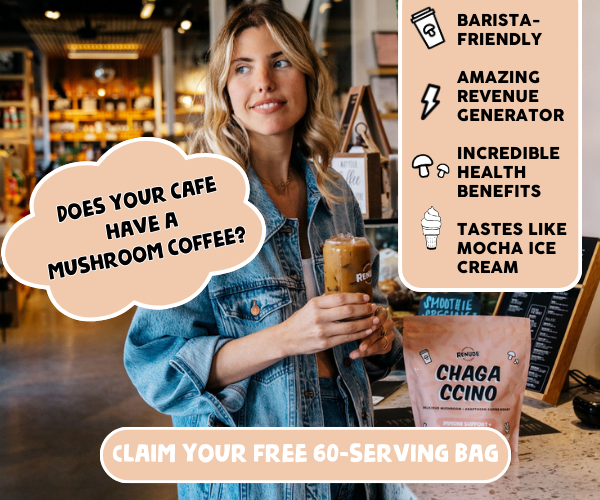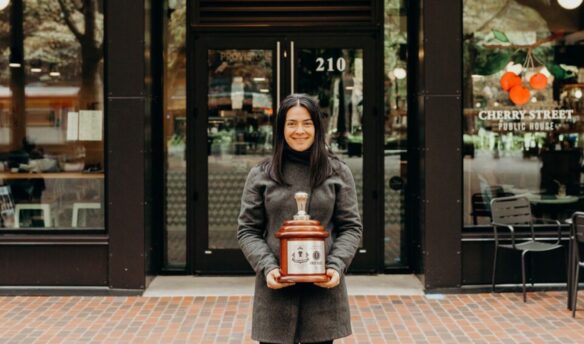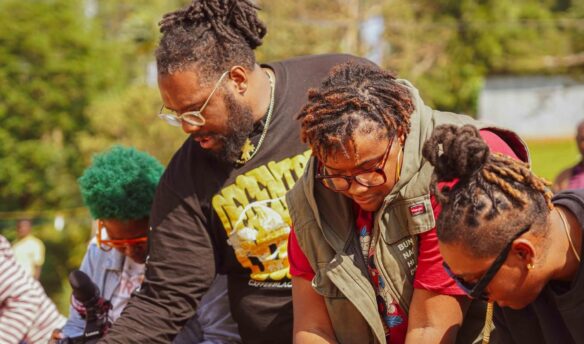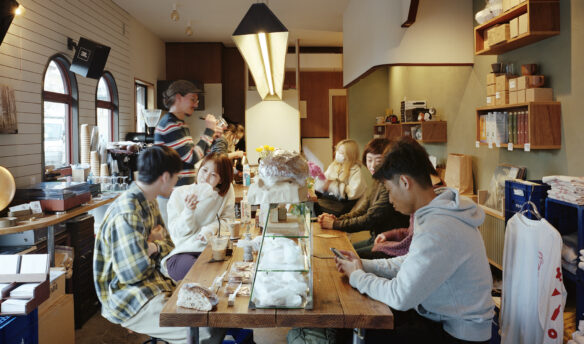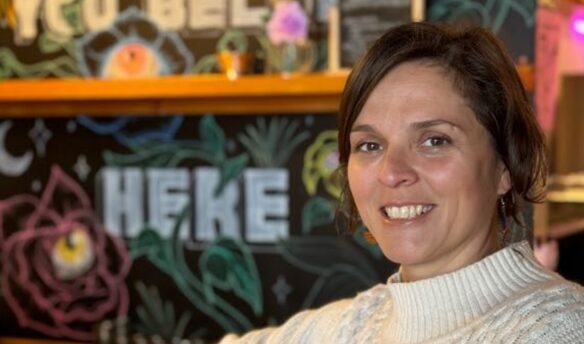[C]offee has long been part of the French identity. Some of history’s most well known French figures were coffee lovers. Honoré de Balzac drank the equivalent of fifty cups a day (although he consumed it in straight coffee grounds). Voltaire—who was said to drink upwards of forty cups of coffee a day—purportedly responded to his physician’s comment that coffee was slowly poisoning him by saying, “Yes, it must be a slow poison, it has been poisoning me for over seventy years!”
With its first café, le Procope, dating back to 1686, café culture has been intrinsically linked to Parisian culture for centuries. After all, what would a trip to Paris be without a lazy morning spent on a café terrace nursing a café au lait and watching Parisian street life unfold in front of you?
But while Paris had a robust café culture, until recently the city did not have a coffee culture, at least not one focused on the quality of what was in the cup. Shots were harsh, bitter, and over-extracted, made of coffee sourced from French industrial coffee giants. In a culture known for painstakingly focusing on the food served on a plate and the wine poured into a glass, how could the quality of the coffee be so bad?
Until the last few years, Paris’ coffee reputation was dismal at best. If you were willing to let ambience take precedent over taste, there was plenty of coffee to be consumed, all while sitting on the iconic wicker chairs Parisian cafés are known for. But if you wanted a cup with quality, you were hard-pressed to find one.
Fortunately for coffee lovers, over the last few years, this has all come to change. Today Paris leads the way in the French specialty coffee scene, influencing other cities around France, and around the rest of Europe.
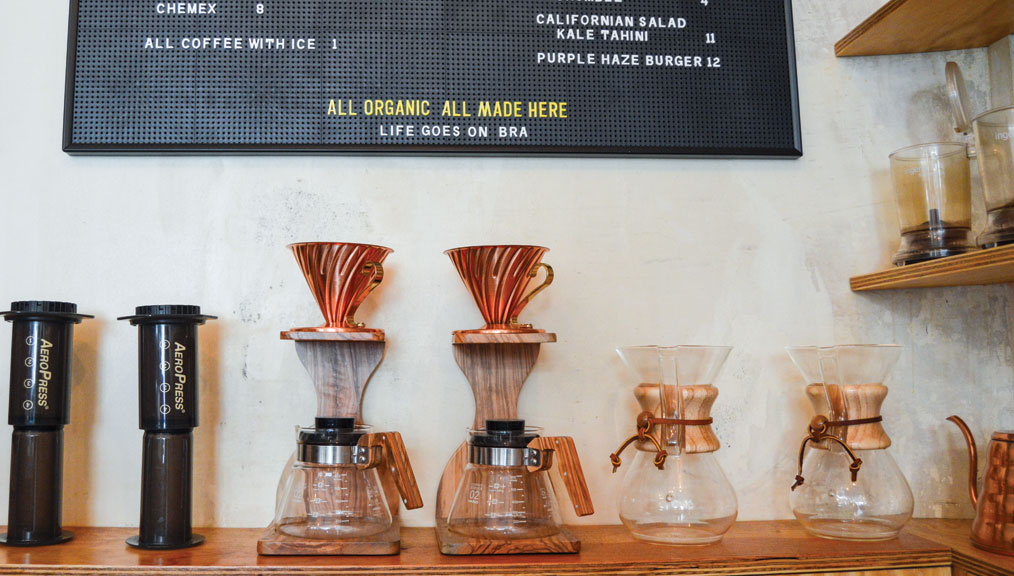
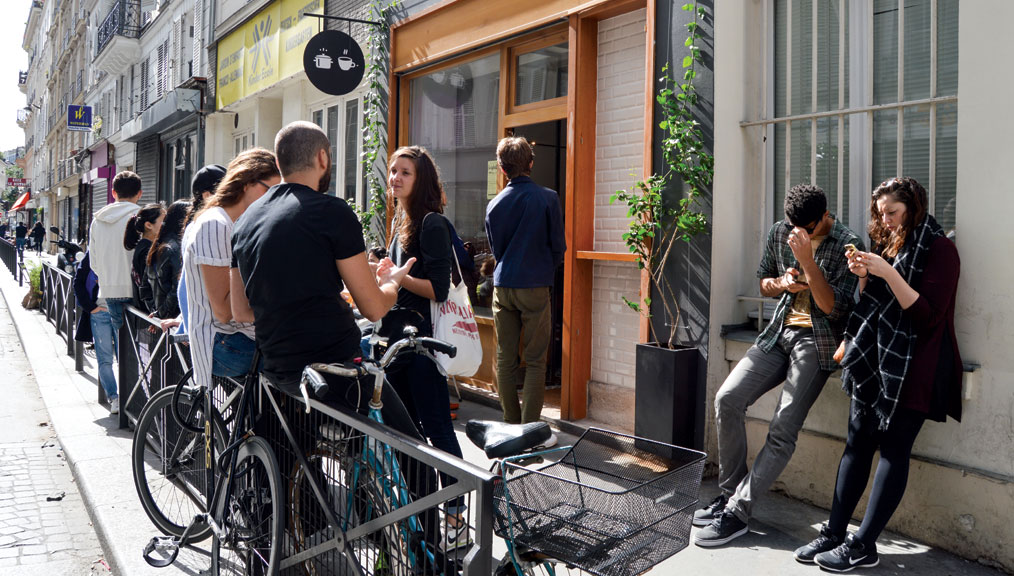
[T]ravel back only a handful of years, and the coffee scene looked desolate, even if it wasn’t empty. Before the specialty scene was born, you “could find an independent roaster in every Parisian district, so it has always been easy to find freshly roasted coffee beans outside of supermarkets,” says Emmanuel Buschiazzo, the founder of Réseau des Baristas de France. “However, without any doubt, there was a tendency, even a will, to over-roast what was most generally lower- or mid-range coffee beans. In fact, there was virtually no place in Paris for high-grade, single-origin coffee served by a professional barista until la Caféothèque opened its doors in 2005.” La Caféothèque helped to kick-start the Parisian coffee revolution both with a café and roastery, though for several years it was the only specialty operation around.
In 2009 came roaster l’Arbre à Café, followed in 2010 by Café Lomi and Coutume. That same year one of the first Anglophone-inspired coffee shops opened, KB Caféshop, situated at the footsteps of Montmartre. Two years later, in 2012, two more big players came to the specialty café scene: Télescope and Ten Belles.
Looking back, it’s easy to pinpoint 2013 as the year when things started changing in a big way. It was the year that some of the leaders of the Paris specialty coffee scene launched, with the likes of Loustic, Holybelly, Fondation, Fragments, as well as the roastery Belleville Brûlerie-Paris all opening their doors to welcome coffee lovers and to educate those who had yet to be bitten by the coffee bug. In the short amount of time since, Paris has grown into a burgeoning specialty coffee capital, one that was almost unimaginable only a decade ago. “We went from the beginnings to an explosion,” says Antoine Nétien of Coutume. “We created a large group of aficionados who will not go back.” As they won’t go back to bad coffee, those customers will be on the lookout for more of the good stuff, which has been good for new coffee businesses. “I don’t think we have ever had as many openings,” says Nétien of all the new coffee businesses that launched last year. While just a few years ago there were only a handful of specialty cafés, today you have co-working cafés, pop-up shops with specialty coffee bars, and food events where the coffee on hand is about more than an easy-to-make capsule.
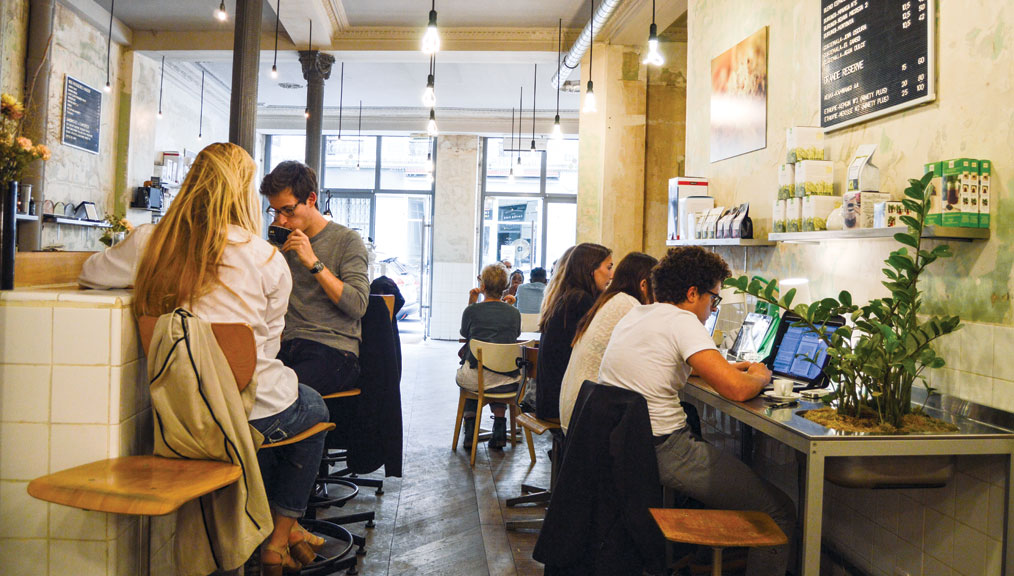
A busy day at Coutume.
Newcomers to the scene can thank that explosion; today the prospects of opening a coffee business are very different from a few years ago. “It would be perhaps a little more acceptable to open a purely coffee-centric shop now,” says Chris Nielson of Fondation, “whereas two or three years ago that kind of concept would have been too foreign.”
As more coffee-centric places have opened, they have encouraged customers to not only seek out businesses that focus on quality, but also bring that quality into their kitchens. “You see people who say, ‘Yes, I have my Chemex,’” says Nétien of Coutume. “You didn’t see that before.”
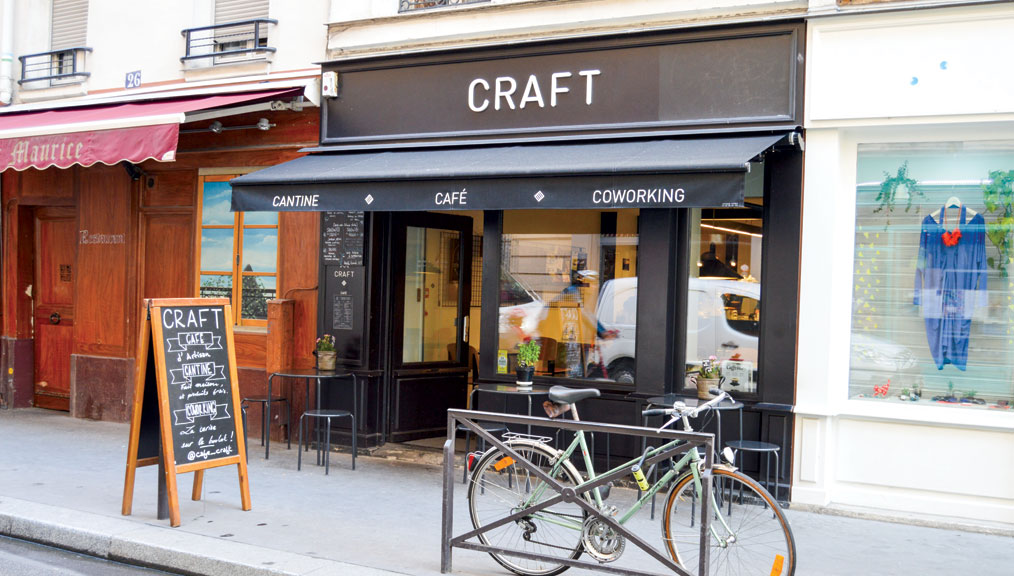
[W]hile it may have taken some time for specialty coffee culture to hit the Parisian streets, given the general French attitude towards good food and wine, there’s a great potential for it to stay. “I think what makes the Paris specialty coffee scene unique is really the culture of Paris and France itself. Unlike in many other places, food and flavor have value in this culture, and always have. While the execution of food in France has certainly varied in quality over the decades, the idea that good food and amazing flavors are something worth paying for never has,” says David Nigel Flynn, who along with Thomas Lehoux, launched a series of barista events in 2010 called Frog Fight to generate interest in the coffee community, and later, would open the city’s well-loved roastery, Belleville Brûlerie-Paris. “It was always a matter of letting people know that coffee could be something other than burnt and gross; that it could be delicious. It was never a situation of defending the idea of good coffee as something that should be valuable.”
In other words, it wasn’t that Paris wasn’t interested in good coffee, it was that no one had ever served it before. Coffee was undrinkable simply because that was how Paris understood coffee to be. “We are reactivating the French palate,” says Nétien. Paris’ coffee entrepreneurs aren’t just serving up good coffee, they are getting Parisians to rethink what coffee is, and what it can be, and eventually that’s going to challenge the larger brands. “When Parisians will fully understand what specialty coffee is, there will be a breach in the wall built by industrial brands,” says Buschiazzo.
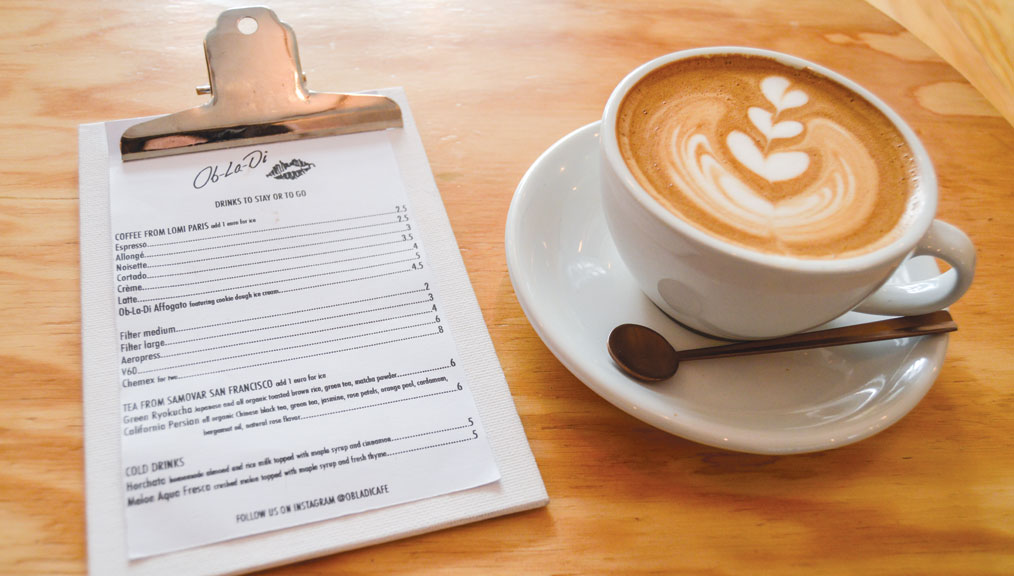
The crack in barricade has already begun to widen, and quickly. “When I moved to Paris in 2009, there was really no coffee of great quality, but there was a feeling that Paris was ready for something like this. There was a lot of activity in the restaurant and food scene and a lot of excitement about the renewal of eating here in Paris. You had to think that Paris could be a great coffee city,” says Nigel Flynn. “After Thomas and I started the Frog Fight, we got pretty excited about the potential of Paris as a coffee destination. I’ve been convinced Paris would become a great coffee city ever since.”
And a great coffee city it is becoming. “All eyes are on Paris at the moment because there is a sense that the Parisian specialty coffee scene (not to mention France as a whole) will finally explode in the coming years; the expectation is high,” says Buschiazzo.
[W]hat will the next wave of Paris specialty coffee look like? One can hope that it will be a democratization of specialty coffee, that the institutions that have long defined Parisian café culture will also come on board, ensuring not just a cultural experience with ambience, but ensuring the quality in the cup as well. “They don’t have a choice,” says Nétien, pointing out that as interest in specialty coffee grows, people will demand better coffee no matter where they are, and in turn, even the traditional cafés will have to change their ways. If they do, Paris has the opportunity to have a truly unique specialty coffee culture, one that is more representative of the iconic café culture that the city is known for.
Parisian specialty coffee culture began by incorporating elements of specialty coffee from elsewhere—most notably, Australia. Many of the city’s café owners, baristas, and roasters have a link to Australia, whether it’s traveling, training, living, or actually coming from there. But what started as an outer influence has taken a more local, adapted form, which is exactly what Paris’ coffee culture needs if it’s going to continue to evolve, and survive. Outside trends come and go, but when a movement is embraced from the inside, it has lasting power. “The coffee shops that brought great coffee to Paris were often a different style of café from the traditional Parisian café, more in the global ‘coffee shop’ style,” says Nigel Flynn. “I think more and more, the Parisian café ethos is going to seep into the scene.”
In fact, it’s exactly that ethos that makes the Parisian scene special. “This is what makes the Paris specialty coffee scene unique today—a melting pot of traditional French mentality mixed with an Anglo-Saxon flair, and a massive amount of people sitting at the table waiting to see what will result from this brew,” says Buschiazzo.
What will that brew bring? Now that the groundwork has been laid, there’s certainly an opportunity for new roasters. “Paris has too few specialty coffee roasters for a city of this size. The more roasters, the more messengers on the ground to diffuse the good word,” says Buschiazzo. The next wave of Parisian coffee also has the chance to become more specialized; now that the bar has been set for the quality of the coffee itself, coffee entrepreneurs will have to focus on other elements of the business. Nétien sees the potential for baristas functioning more like sommeliers, not just focused on educating the customer about specialty coffee; but given that there’s more and more awareness about coffee, also listening to what they like and want. “Depending on your interest, [the sommelier] will give you information,” says Nétien. If you don’t know what kind of wine you want, a sommelier will help to guide you in your choice. “We have to do the same with coffee.”
A lot can happen in a decade, but the complete story of Parisian specialty coffee has yet to be written. The groundwork has been laid, and now we wait to see where the French capital’s next steps lead us. Hopefully, to even better coffee.
—Anna Brones is a freelance writer and founder of the website Foodie Underground. She is also the author of Fika: The Art of the Swedish Coffee Break and Paris Coffee Revolution.

